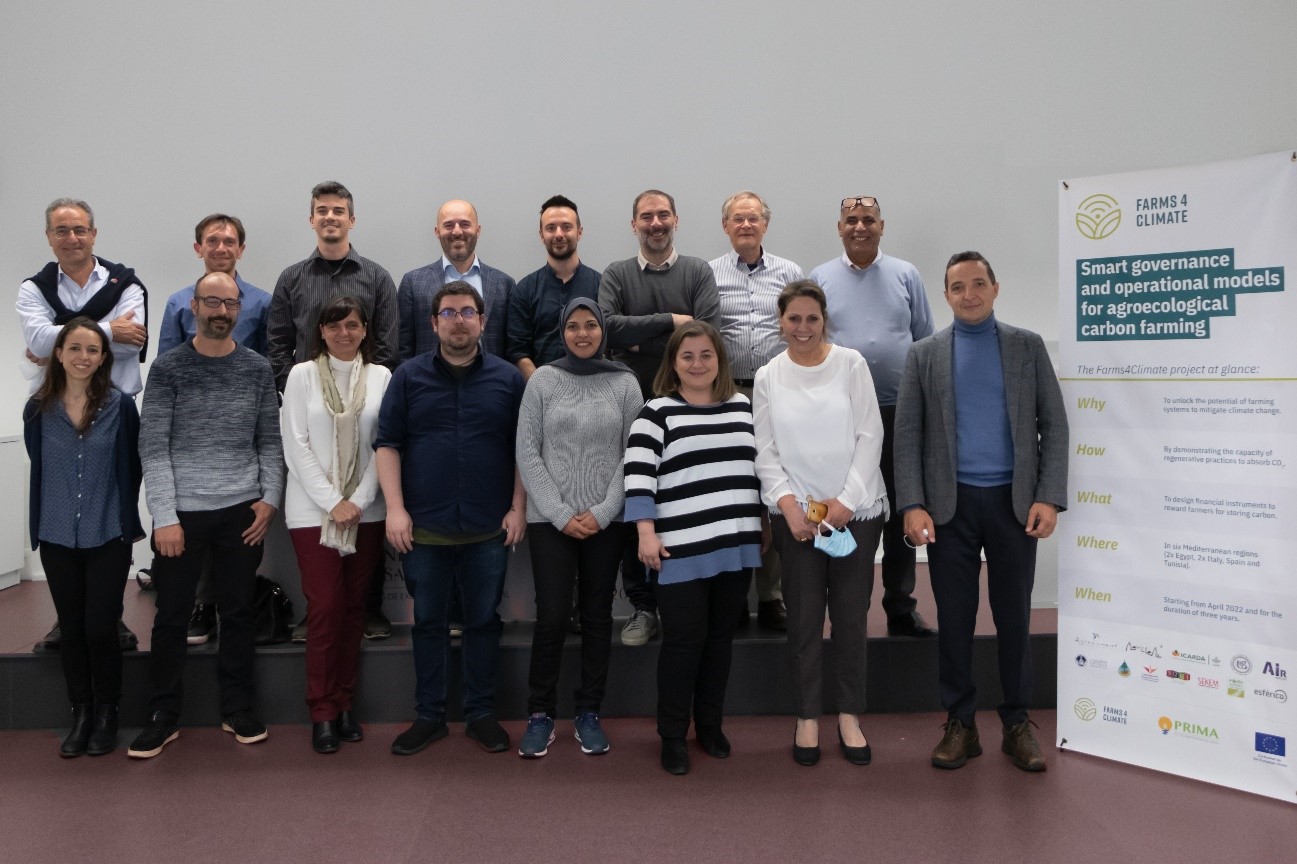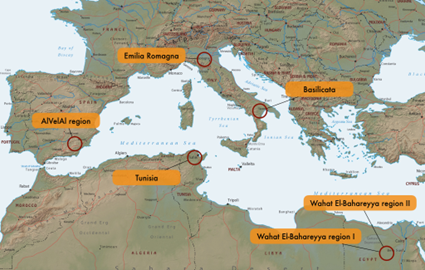The AIR Institute is coordinating FARMS4CLIMATE, a project that will make the agricultural sector more sustainable through the direct participation of its stakeholders
The AIR Institute is coordinating "FARMS4CLIMATE-F4C: Smart governance and operational models for agroecological carbon farming", an international consortium that brings together multiple actors to create innovative solutions for rural communities. Through six regional living labs - two in Italy, two in Egypt, one in Tunisia and one in Spain - communities, farmers and all actors involved in agriculture will be able to propose, develop and test solutions that make the sector more efficient, sustainable and fair. Each of these collaborative "test beds" will focus on a conventional farming system with the potential to shift towards more regenerative management.

F4C is based on the premise that, to successfully bring about societal change, it is essential to provide economic metrics for it, and more importantly it is necessary to create socio-cultural motivations at a broader level. Farmers need to be inspired by a vision that they can connect with and use it to drive action beyond narrow economic considerations.
Apart from the coordination tasks within the project, the AIR Institute will extend its expertise in the design of technological solutions based on Blockchain and Artificial Intelligence and, above all, it will make the know-how of the carbon sequestration and regenerative practices more comprehensible and will build a database for the sector.
This project, whose website https://www.farms4climate.eu/ has been launched today, is co-funded by PRIMA (Partnership for Research and Innovation in the Mediterranean Area - Grant Agreement 2111) and was built in response to the 2021 call for innovation actions. The website has been designed to convey information to multiple stakeholders, not only to scientists. The ambition of the project website is to promote holistic thinking regarding the trends and opportunities in the agricultural sector, so that more climate-friendly agri-food systems may be created.

Living labs, collaborative models of development
The living labs devised by the consortium have been inspired by two success stories which are deeply rooted in rural communities. One is the Economy of Love, an initiative that has led to a certification standard for sustainable, ethical and transparent products throughout the supply chain. The initiative aims to develop a community driven economy based on respect and compassion for people and nature rather than pure profit. The second one is the 4 Returns model, which seeks the economic regeneration of the rural areas in which it operates and the generation of employment using a model that ensures the return of inspiration, social capital, natural capital and financial capital.
The overall objective of FARMS4CLIMATE is to adapt these two models in five Mediterranean regions.
F4C as a tool for the implementation of carbon farming
The main ambition of the FARMS4CLIMATE consortium is to make carbon farming profitable for small-scale producers. Carbon farming, in the words of the European Parliament, refers to "agricultural management practices that aim to achieve climate change mitigation in agriculture". This involves improvements in both land and livestock management, the protection of carbon stocks in soils, materials and vegetation, as well as the proper use of biomass.
Carbon farming also includes a business model that aims to increase climate change mitigation by paying farmers to implement climate-friendly farm management practices. Funding can come from public funds such as the Common Agricultural Policy (CAP) or from private sources through supply chains or carbon markets, as established by the European Union.
In addition to the AIR Institute, the consortium is formed by the following partners:
- Soluciones Agricolas Ecoinnovadoras (SAE), Spain.
- Aland Foundation (AVA), Spain.
- Università degli Studi della Basilicata (UNIBAS), Italy.
- Agreenment srl (AGM), Italy.
- Università Cattolica del Sacro Cuore (UCSC), Italy.
- IFOAM AgriBioMediterraneo (IFOAM), Greece.
- Sekem for Land Reclamation (SEKEM), Egypt.
- International Center for Agricultural Research in the Dry Areas (ICARDA), Lebanon.
- SQLI Services (SQLI), Tunisia.
- Institut National de Recherche en Génie Rural, Eaux et Forêts (IEF), Tunisia.
- Heliopolis University (HU), Egypt.

